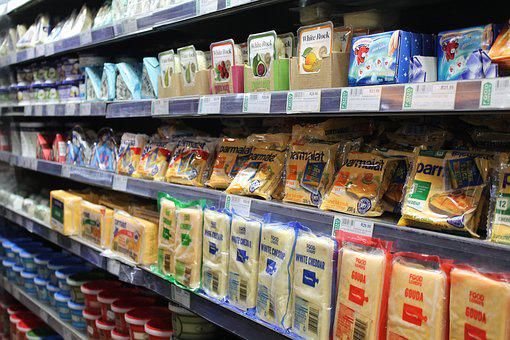Ultraunprocessed foods (UPFs) or instant foods made in laboratories or food industries, like frozen pizzas, packed cheese, soups, hot dogs, etc., are becoming popular these days. They are replacing natural foods and minimally processed meals in many countries. However, they have been linked with causing premature deaths. Researchers at the University of São Paulo, Brazil, have found that increased consumption of these foods was associated with more than 10% of all-cause premature, preventable deaths in Brazil in 2019. Interestingly, Brazilians consume less ultra-processed foods compared to citizens in high-income countries.
Image Credits: Pixabay
“Previous modelling studies have estimated the health and economic burden of critical ingredients, such as sodium, sugar and trans fats, and specific foods or drinks, such as sugar-sweetened beverages,” explained Dr Eduardo A.F. Nilson, lead study author. “To our knowledge, no study to date has estimated the potential impact of UPFs on premature deaths. Knowing the deaths attributable to the consumption of these foods and modeling how changes in dietary patterns can support more effective food policies might prevent disease and premature deaths.”
The research process
Dr Nilson and his team collected data from nationally representative dietary surveys (2019 survey reports) to determine the average consumption of UPFs by age and sex groups. They used statistical analyses to find the total number of deaths due to UPF consumption and the outcomes of reduced UPFs by 10, 20 and 50 percent within those age groups. Across all age and sex groups, UPF consumption ranged from 13 percent or 21 percent of total food intake in Brazil during the study period. In 2019, 541,260 adults aged between 30 to 69 died prematurely. Out of these, 261,061 adults had preventable non-communicable diseases. The model found that nearly 57,000 deaths in 2019 occurred due to UPFs consumption, which is equivalent to 10.5 percent of all premature deaths and 21.8 percent of all deaths from preventable non-communicable diseases in adults aged 30 to 69. The researchers suggested that in developed countries like the USA, Canada, the UK and Australia, where UPF consumption is double compared to developing and underdeveloped countries, the estimated death rate would be higher.
Future projections
The team noticed that UPFs have affected or significantly reduced the intake of traditional foods, including beans and rice, in Brazil. To decrease our dependence on such foods and promote healthy meals we need strategy-driven approaches such as regulatory policies, strengthening the implementation of food-based dietary guidelines, changing food environments, and improving consumer knowledge, attitudes, and behaviour. Reducing the consumption of UPFs by 10% to 50% could potentially prevent approximately 5,900 to 29,300 premature deaths in Brazil each year.
“Consumption of UPFs is associated with many disease outcomes, such as obesity, cardiovascular disease, diabetes, some cancers, and other diseases, and it represents a significant cause of preventable and premature deaths among Brazilian adults,” said Dr Nilson. “Even reducing consumption of UPFs to the levels of just a decade ago would reduce associated premature deaths by 21%. Policies that disincentivize the consumption of UPFs are urgently needed.”
Having advanced tools to estimate deaths due to UPFs can help countries to redesign their food policies and packaging laws to promote the health of citizens.
The research was published in the journal American Journal of Preventive Medicine.
To ‘science-up’ your social media feed, follow us on Facebook, Twitter, or Instagram!
Follow us on Medium!




